Following the first ever North Carolina Black Farmer Lobby Day in the 2023 legislative session, in late July, SiX co-hosted Seeds of Empowerment: Cultivating Black Farmers and Sustainable Agriculture, a tour of Black-owned farms with Senator Natalie Murdock and Representative (and farmer!) Ray Jeffers in the Durham/Raleigh area. North Carolina legislators joined advocates for a unique opportunity to tour four farms, connect directly with Black farmers, learn more about the historical and current experience of Black farmers in North Carolina who are practicing sustainable and regenerative agriculture techniques, and in real-time identify and collaborate on strategies to remove barriers in policy that are impacting Black farmers.
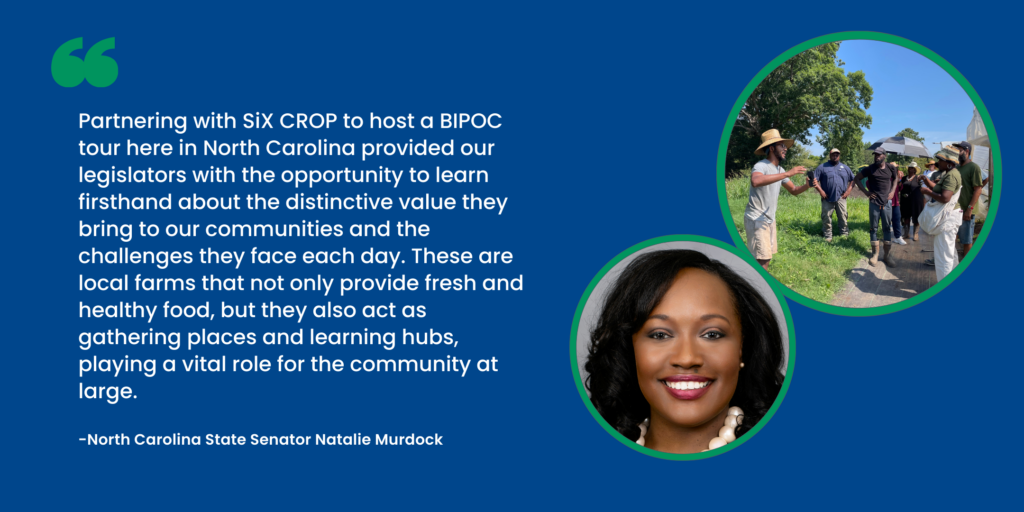
On the tour, legislators visited with Howard Allen of Faithfull Farms who began farming high quality vegetables for market on his church’s land in 2013. Faithfull Farms is a family run operation that focuses on creating a more sustainable and equitable food system for all people, by mentoring young Black farmers.
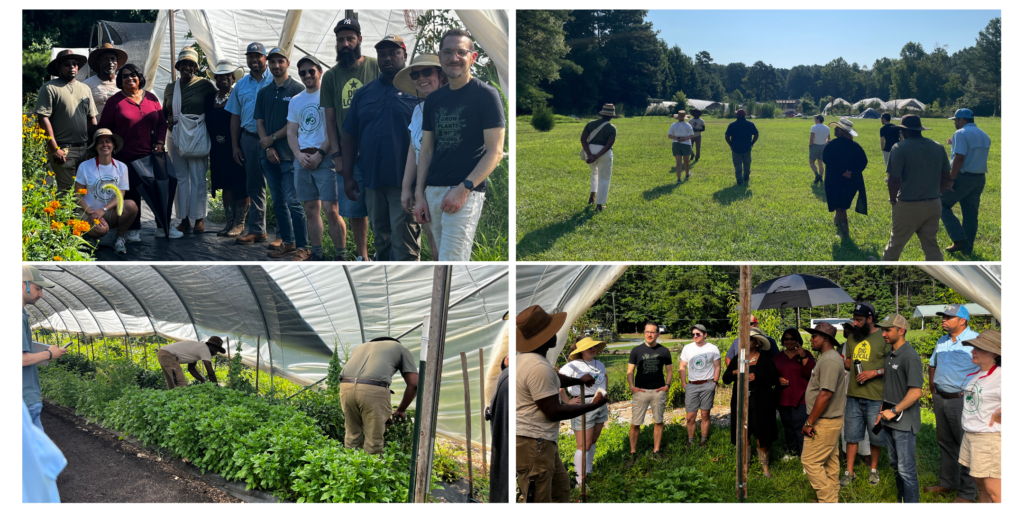
When speaking with Farmer Kamal of Sankofa Farms, legislators learned about the earth centered practices that can create a sustainable food source for food insecure people in both rural and urban areas. Legislators also learned about the difficulties in getting access to land for young, beginning and Black farmers looking to feed their communities.
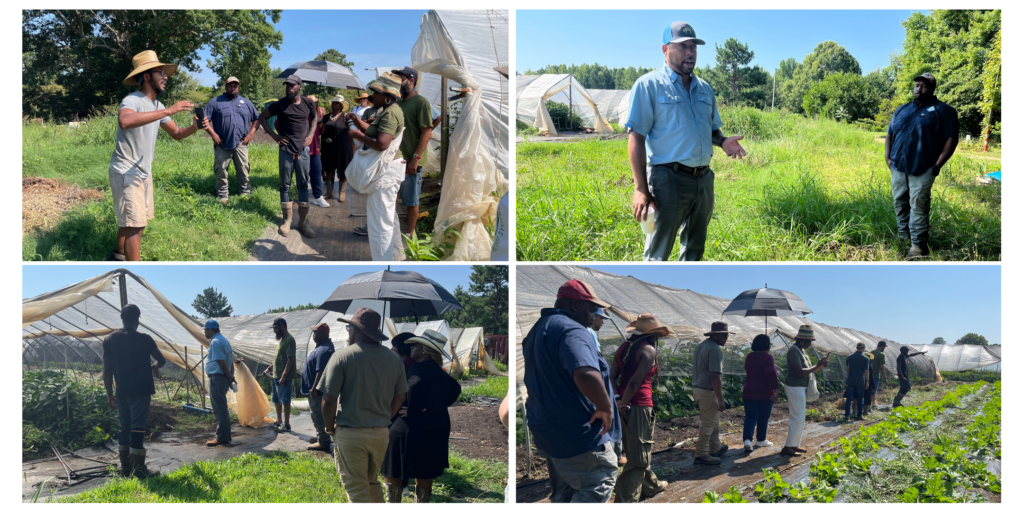
Hawk’s Nest Healing Gardens is a member of RAFI-USA and grows food for the community through the principles of food sovereignty and self determination. With an intersectional lens, Hawk’s Nest works to facilitate community dialogue and conversations about social and environmental justice and they are focused on building health and wealth in their community.
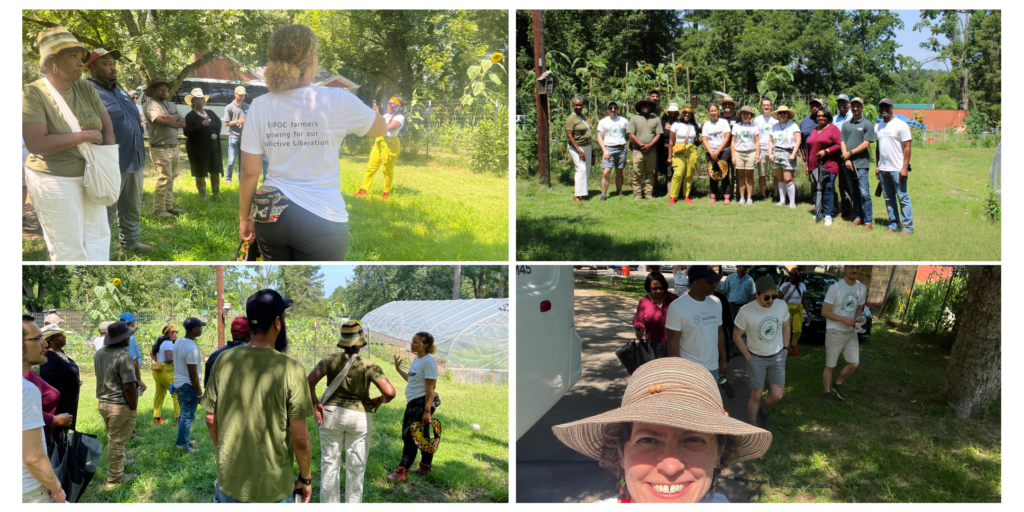
The last stop on the tour was Catawba Trail Farm, which is the site of a former plantation that profited off the labor of enslaved people. The community caring for Catawaba Trail Farm is using the space to heal and cultivate a community, centered on food sovereignty and restorative justice. Through various programs, Catawba Trail Farm is helping people learn to grow their own fresh vegetables in order to reduce food insecurity and build resilience. At Catawba Trail Farm, legislators spoke with a youth volunteer group, learned about the Farm’s plans to restore historical buildings on the site, and visited the unmarked graves of enslaved people who were buried on the former plantation site.
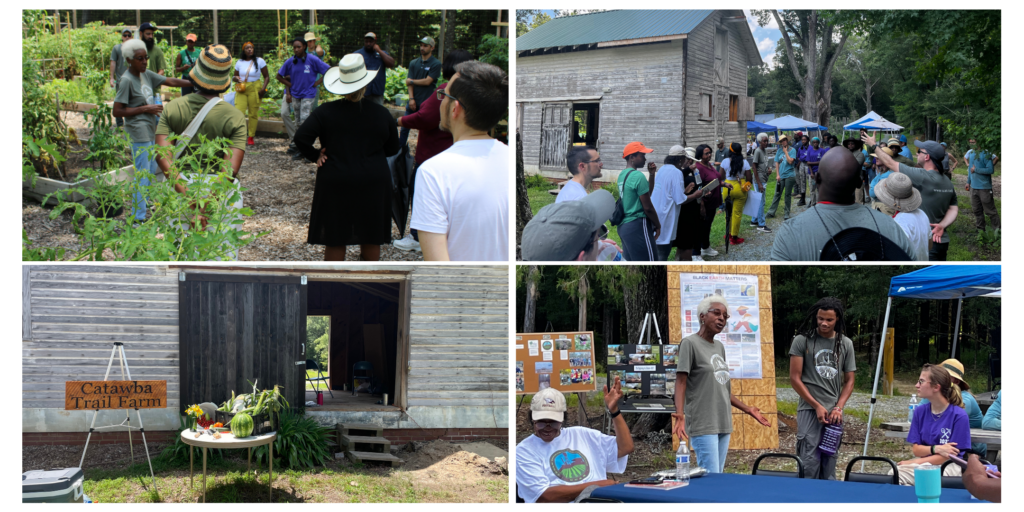
Legislators came away from the day with a greater appreciation for how Black Farmers contribute to local communities, and they developed a more comprehensive understanding of the issues farmers face in North Carolina. Legislators also deepened connections with both farmers and advocates, building trust and solidarity, while considering how they could uplift the voices of Black farmers in North Carolina policy making and implementation.

